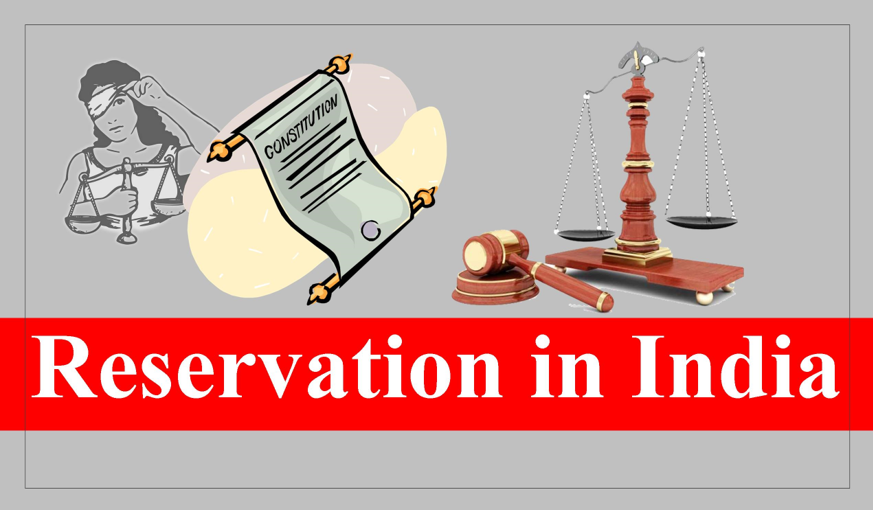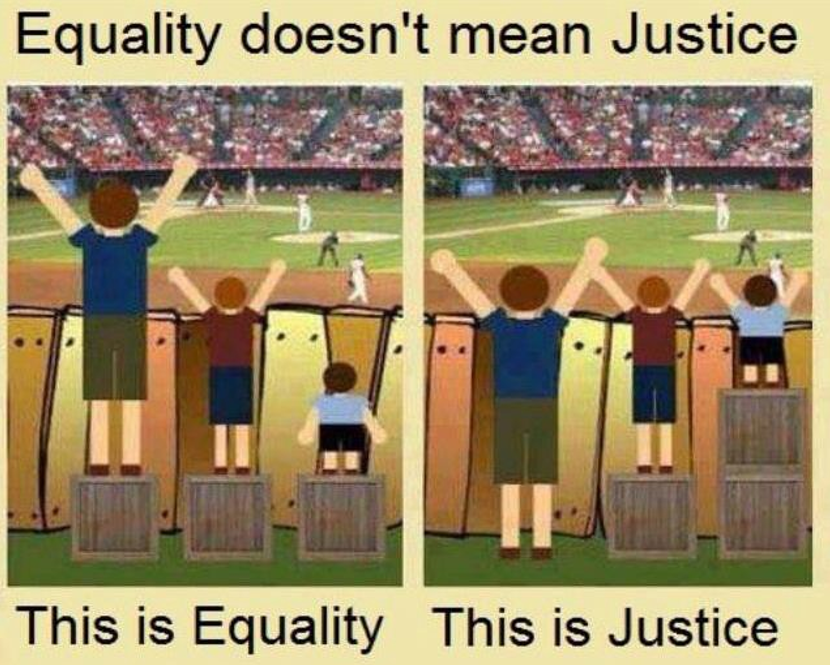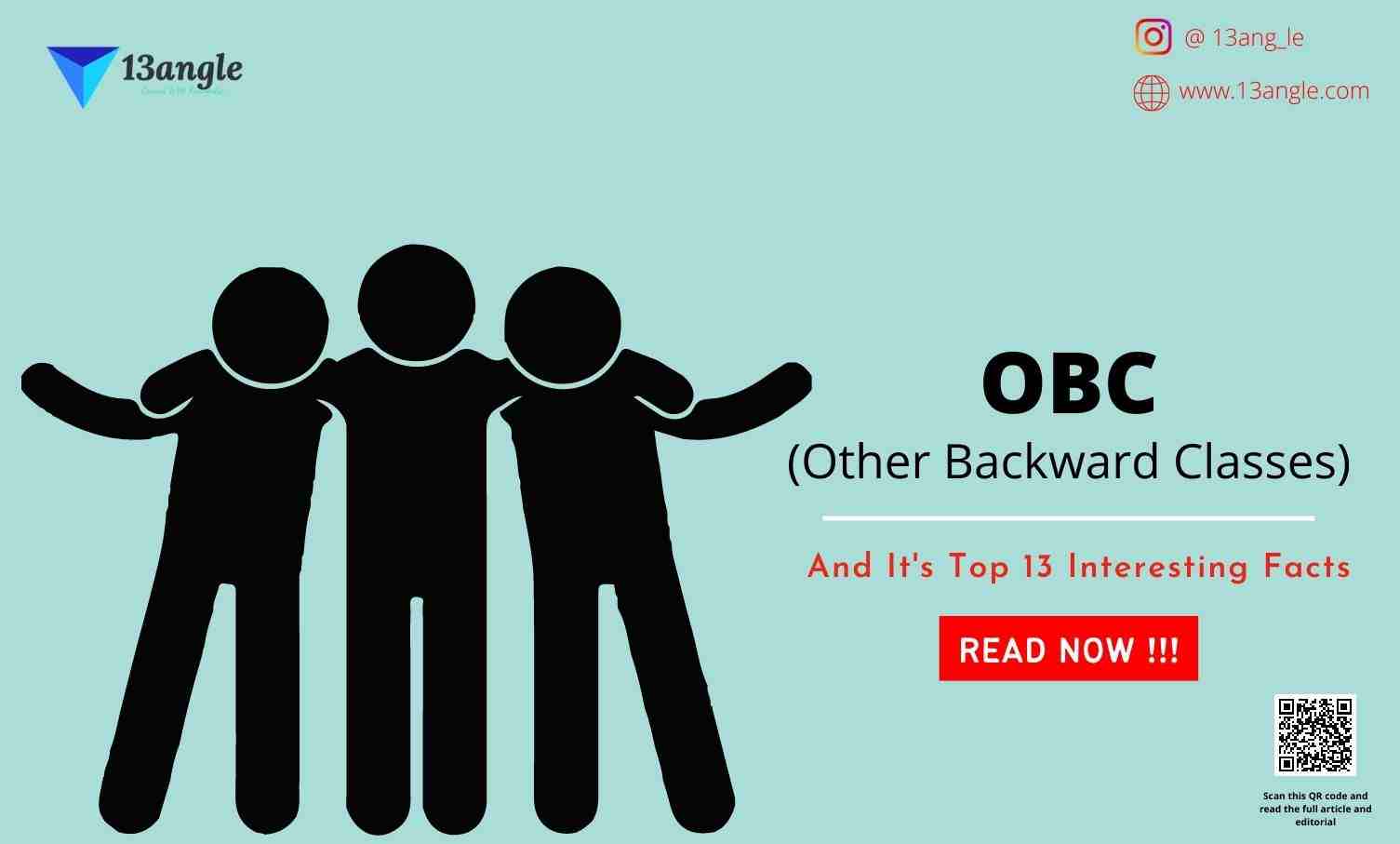
Reservation policy can be defined as a process of reserving specific seats for SC, ST, OBC, and EWS. Introducing this policy was crucial to abolish caste culture and discrimination and to give equal rights to the people of all the castes this policy was indeed required at that time. No doubt there are many advantages of this policy like equal representation, equal rights to all, reducing the economic gap, etc. But at the same time, there are many disadvantages as well like encouraging casteism, unfair competition, etc. With time reservation policy has evolved by changing the percentage and criteria of reservation for SC, ST, OBC, and EWS. It would not be wrong saying that now time and circumstances are different than earlier when this policy was implemented, there seems to be no need for caste-based reservation now, so there is a need to make many changes in the policy according to the prevailing scenario.
What Is Reservation Policy?

The reservation policy is a process of reserving a certain percentage of seats in Education, Jobs, etc. for specified backward groups like scheduled caste, scheduled tribes, etc. Under this policy backward classes are given access to scholarships, concessions in fees, relaxation in qualifying exams as well as relaxation in age to a certain caste.
History Of Reservation Policy In India

Reservation policy prevails in India, for many years. There was an urgent requirement of this policy at that time because untouchability and the caste system were dominant in society. In ancient times, the hierarchy system was followed by people under which, Hindu society was divided on the basis of caste, categorized as Brahmins, Kshatriyas, Vaishyas, and the Shudras. People belonging to the lower caste were not allowed to touch things or enter the areas of the upper caste people. These people were considered to be impure for society and were excluded from all social rights. Strict restrictions were put on them due to which they were not allowed to attend any social gatherings.
To save the interest of these people, to give them their social rights, a reservation policy was introduced by the Indian government. This policy had its foundation upon the idea of providing equal rights to everyone and diminishes the culture of casteism.
Benefits Of Reservation Policy

The purpose for which this policy was initiated seems to be fulfilled by this. There was suppression in the social status of the backward sections. It was not an easy step to implement but slowly it came into action and provided many benefits to society some of them are discussed in detail below;
Uniform Representation:-
As a result of this policy, there was an increase in the number of backward people in the various decision-making procedures. Due to discrimination on the basis of caste, only the upper caste section used to hold the power of decision making and they were the only members of the decision-making committee that is various political seats. As a result, they use to ignore the interests of the minorities and made decisions that used to somehow promote discrimination on the basis of the caste. They did nothing to uplift the backward classes. But due to the implementation of the reservation policy people from the lower castes as well people became the members of these committees because seats were reserved for them, they got a chance to think for them and make decisions for their upliftment.
As an outcome of this, there was the uniform spread of people from all the castes as representatives.
Reorganization To The Deserving Candidates:-
Due to reservation policy more deserving candidates got a chance to grab the higher posts in all the sectors. But only upper caste people were able to apply for the higher posts or services in the public sectors or private institutions as well. The talent and abilities of the deserving candidates belonging to the backward sections were wasted. Their abilities which could have been worked as upliftment of the innovation in the society were being ignored.
But this policy helped these people to get consideration. Therefore more deserving and talented candidates to add value to the economy. So this policy not only helped these people to upgrade themselves but also help the nation to utilize the talent of its citizens in a more efficient way which will add more to the economy.
Realization Of Justice And Human Rights:-
The caste culture which was prevailing in the society at that time kept people away from their rights. They were not aware of their social duties and rights. They were deprived of equal treatment and justice.
Backward classes didn’t use to have any means to fight for their rights.
This policy proved to be the factor due to which people realized that they have the right of being treated equally in society and they have the right to fight against anything wrong. This policy has played a very important role in making people realize their rights.
Economic Balance In The Society
The spread of wealth was limited only to the upper caste people. They used to be the only ones who were involved in most of the high-earning activities such as government posts, private jobs, and running businesses.
- The implementation of this policy due to which seats in all the public and private sectors were reserved for backward sections as well as helped to make the spread of wealth equality in the society.
- Poverty and Unemployment:-
The backward sections of the society were most affected by the crisis of poverty and unemployment. The reservation policy became a problem-solving factor for this crisis.
Disadvantages Of This Policy

Promoting Casteism:-
Even though this policy was introduced with the aim of curbing casteism and giving equal rights to all the citizens. The reservation of seats on the basis of caste somehow divided the people on the basis of the caste only. And in some or other way it leads to the promotion of casteism.
Some Of The Well Off People Becoming More Well Off:-
Not all the people from the backward classes at poor, not all the people belonging to lower classes need a reservation, some who are already privileged will become more privileged due to the reservation policy, this will again increase the economic gap between people and spread of wealth will become unequal.
Unfair Competition:-
It will not be wringing saying that reservations are the biggest enemy of meritocracy. It is because of the reservation made in the education zone. The reservation in education provides ease in entry standards, due to which there is no honest competition, which violates the code of conduct of training. This reservation has brought about the migration of many college students from India to other overseas countries to pursue the training.
Unequal Opportunity
As per a national survey, only 0.7% of entire population gets scholarships through merit tests are reserved. Students studying hard and from General category don’t have a bright chance to grab the opportunity.
Government Data On Evolution Of Reservation Policy

Reservation For SC And ST
On attainment of Independence, instructions were issued on 21-9-47 providing for reservation of 12 ½ per cent of vacancies for SCs in respect of recruitment made by open competition. In case of recruitment otherwise, then by open competition, this percentage was fixed at 16 2/3 per cent.

Resolution of 13-9-50 provided a 5 percent reservation for STs apart from the percentage fixed for SCs already in force. The 1951 Census showed that the percentage of SCs in the total population was 15.05 per cent and that of ST 6.31 per cent.
Reservation For OBC
The Government in 1993 introduced reservation for Other Backward Classes in direct recruitment broadly at the rate of 27%. After the introduction of reservation for OBCs, total reservation for SCs, STs and OBCs comes to 49.5% in case of direct recruitment on all India basis by open competition and 50% in case of otherwise than by open competition. As per various judgments of the Supreme Court, total reservation for these communities cannot exceed the limit of 50%.
Criteria
Reservation has been extended to different modes of promotion in stages. In 1957, the reservation was provided for SC & ST in departmental competitive examinations. Reservation in promotion by selection in Group C and Group D was provided in 1963 and in the same year reservation in the departmental competitive examination was limited to Class III and Class IV only. The position was slightly changed in 1968 when the reservation is a limited departmental examination to class II, III, and IV, and promotion by selection ‘to Class III and IV was subjected to a condition that element of direct recruitment should not exceed 50 percent.
Reservation till 1.7.1997 was computed on the basis of the number of vacancies filled. The Supreme Court in the case of R.K. Sabharwal vs. the State of Punjab held that the reservation should be determined on the basis of a number of posts in the cadre and not on the basis of vacancies. Accordingly, the post-based reservation was introduced w.e.f. 2.7.1997. The basic principle of the post-based reservation is that the number of posts filled by reservation by any category in a cadre should be equal to the quota prescribed for that category. Prior to the introduction of post-based reservation, there was a provision of exchange of reservation between SCs and STs. After implementation of the post-based reservation, such exchange is no more permissible.
Various relaxations and concessions are given to SC/ST candidates like relaxation in upper age limit, exemption from payment of examination/application fees, relaxation in the qualification of experience at the discretion of the UPSC/competent authority, relaxations in the standard of suitability, etc. Some relaxations like in upper age limit are also available to OBCs.
Reservation For EWS
Articles 15(6) and 16(6) were inserted in the Constitution, vide the Constitution (One Hundred and Third Amendment) Act, 2019. This enabled the State to provide the benefits of reservation on a preferential basis to the Economically Weaker Sections (EWSs) in civil posts and services in the Government of India and admission in Educational Institutions. Accordingly, the provision for 10% reservation to the EWS was implemented by the Government in January 2019.
Instructions were issued by the Ministry of HRD for increasing the total number of seats over a period of two years, to provide for 10% EWS reservation, without adversely affecting the proportionate seats of SCs, STs, and OBCs. An amount of Rs.4315.15 crores was sanctioned for creation of additional 2,14,766 seats (1,18,983 additional seats during 2019-20 and 9,783 additional seats during 2020-21) in 158 Central Educational Institutions.
10% reservation under the EWS category is applicable to those persons who are not covered under the existing scheme of reservations for the Scheduled Castes, the Scheduled Tribes, and the socially and Educationally Backward Classes.
Does India Really Need Caste Based Reservation

Reservation was supposed to uplift the social status of oppressed groups but now it seems like it has become a process of spoon-feeding for them.
No doubt in the early 90’s reservation was the needed and a very crucial step indeed because casteism and discrimination existed at that time.
People were subject to untouchability and other forms of discrimination. But now in the 20th-century things have changed a lot. We are not in the early nineties now circumstances have changed, things like untouchability, etc. Doesn’t exist now, people are becoming educated and sensible enough to treat each other in the right way, maybe not all but the majority. SC, ST, or OBC of this generation are not deprived of their basic rights nor are they treated badly like the oppressed group of an earlier time was being treated. So, obviously lower-caste group of today’s scenario does not need any reservation.
Reservation has become the enemy of society today.
Caste-based reservation is being misused by people now. It might have been introduced as the strength of the system but somehow now it has become the biggest loophole of our system. The privileged ones are becoming more privileged and poor ones are becoming poorer.
How can we even say that there is equality when one child knows that even if he will score 95%, it will be difficult for him to get admission to a good college but on the contrary, the other child is very sure that he will get the admission even if he will score 80% just because he belongs reserved category. Is the potential of a child scoring 95 and the one scoring 80 the same? Is the amount of hard work done by both of the same? Obviously not, the one who is scoring 95 is more deserving but due to the prevailing caste-based reservation system both of them will be treated equally.
The caste-based reservation system is not only making the competition unfair but at the same time, it is also affecting the quality of elected candidates for various posts.
The one who has scored more or has worked harder obviously has the potential to do more but due to reservation policy, he is not able to get the job and is unemployed, his talent is being wasted and the one who is not that much laborious and talented is being employed just because of reservation. So is it not the placement of a less deserving person and wastage of the talent of a more deserving people.
What is worst about this policy is that some rich people from the reserved category are getting more opportunities and some poor people from the general category are being deprived of these opportunities. This surely increases the economic gap and unequal distribution of wealth. It would not be wrong saying that reservation should not be done on the basis of caste it can be done on the basis of poverty only.
Change is necessary for progress and it’s high time for our government to realize that there is a need to make a change in this reservation policy, and caste-based reservation should be removed, people do not need reservation on the basis of their caste in today’s scenario.
Conclusion
Equality is the essence of the constitution of India, however, the reservation policy is opposite to the precept of equality. Either the caste-primarily based reservation or the reservation to economically backward segment of the society, the reservation coverage presents special privileges and further safety to certain classes of humans within the society and it disturbs the spirit of the charter of India.
There should be a focus on the abolishment of the caste system, malpractice of untouchability, and other varieties of discrimination from our society. So that equality in society can be ensured.
Top 13 Interesting Facts About Reservation Policy
There is a general ban on DE reservation of posts in case of direct recruitment.
In the case of direct recruitment, OBC’s get a relaxation of 3 years in the upper age limit, relaxation in the standard of suitability, etc.
Backlog reserved vacancies are treated as a special and distinct group and a ceiling of 50 percent reservation’ in the recruitment year doesn’t apply to these vacancies.
Even prior to India’s independence and the provision of reservations in the Constitution, several princely states had in the 19th and early 20th century provided reservations in some form to lower castes.
Reservations in public services of the central government came into force, whereas reservations in central higher educational institutions were implemented in 2006.
Reservation of SCs/ STs has increased in all the Groups viz. A, B, C, and D during the last six decades. At the dawn of independence representation of SCs/STs in services was very little.
With the enactment of ‘The Rights of Persons with Disabilities Act, 2016’, reservation is also provided to Persons with Benchmark Disabilities against the posts and services of the Central Government at 4% of the total number of vacancies to be filled up by direct recruitment in the cadre strength in each group of posts i.e. Group A, B, and C.
The persons belonging to Economically Weaker Sections (EWSs) who are not covered under the scheme of reservation for SCs, STs, and OBCs shall get 10% reservation in direct recruitment in civil posts and services in the Government of India.
In Telangana right now is 50% but four years ago in 2017, the Telangana government had passed a bill hiking the reservation of Muslims from 4 to 12% and Scheduled Tribes from 6 to 10%, taking the overall reservation in the State beyond 50%.
The Chhattisgarh government had decided to hike reservation for OBC’s to 27% — which took the overall quota to 82% in the state including 10 % EWS quota from 58%. But in October 2019, the division bench of the high court had stayed the reservation order.
The data from Rajya Sabha shows that, of the total 457 serving secretaries, joint secretaries, and additional secretaries to the government of India, merely 12% are SCs, STs, and OBCs.
Rajarshi Shahu, the Maharaja of the princely state of Kolhapur, introduced the first reservation system in favor of non-Brahmin and backward classes, much of which came into force in 1902.
The government mandates 25.7% reservation to the OBCs, 15% to the SCs, and 7.5% to the STs in government jobs.







